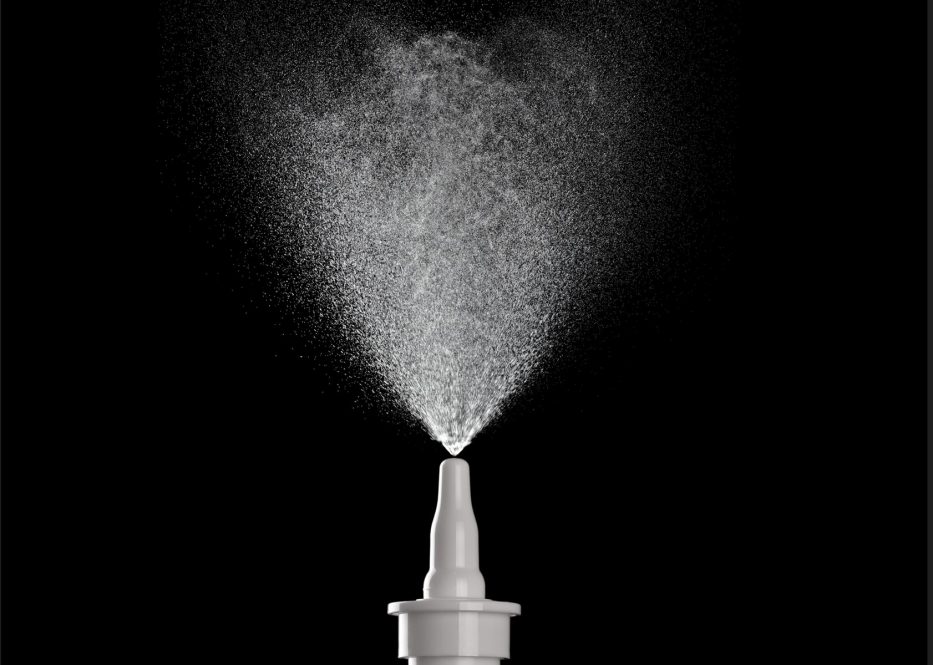A new esketamine service has been launched by the Department of Psychiatry at UConn Health to help people struggling with treatment-resistant depression and in need of swift psychiatric intervention.
Why is this new service so vital?
Anywhere from 20% to 70% of Americans with major depression are considered treatment-resistant, based on the definition of failing to respond to two adequate trials of antidepressant medication, with adequacy determined by dose and duration.
You may even know someone who fights severe depression and waits weeks or months on end for medication regimens to work without bringing them any mental health relief. You may also know someone struggling with depression who experiences suicidal thoughts – or has even sadly tried to take their own life.
“The wait is over. Spravato (esketamine) nasal spray can rapidly bring depression relief to patients, including those with suicidal thoughts, within hours to days of receiving the medicine,” says Dr. Caleb Battersby, director of the new esketamine service at UConn Health. “This newer FDA-approved treatment already offers proven relief to patients and is now available at UConn Health for our treatment-resistant depression patients referred to us by our psychiatry clinics.”
The nasal spray works differently than oral antidepressant medications. It takes a new, rapid approach targeting neurotransmitters in the body’s glutamate pathway. Specifically, it works as an antagonist inhibiting the action of N-Methyl-D-aspartate (NMDA) receptors.
Battersby also leads the electroconvulsive therapy (ECT) service, another treatment that has been proven effective for difficult-to-treat depression, in addition to supervising a treatment-resistant depression clinic, where patients are seen for psychopharmacology consultations, management of vagal nerve stimulators (VNS), and routine follow-up. Battersby works with talented psychiatry residents in these endeavors, saying they make his job a lot easier.
Battersby says, “UConn Health is thrilled to be able to allow patients in need to have greater access to this extremely helpful, and potentially lifesaving medication. Many people in our state are struggling with severe depression. This medicine is in high demand due to its unique mechanism of action, rapid effects, and potential to help those who have not responded to our usual treatments.”
The nasal spray is administered to each patient by the program’s providers onsite at UConn Heath in a relaxing environment, twice weekly for four weeks, then once weekly for four weeks, along with two hours of monitoring after being administered. After the initial eight weeks of treatment, patients can continue to receive esketamine on a less frequent basis.
“It is always a team effort,” says Battersby, who thanks both Dr. Glenn T. Konopaske, medical director of the Talcott Notch Clinic at UConn Health, and Elizabeth Grala, the nurse manager for psychiatric services, who have been instrumental in the esketamine service’s creation. He also thanks the nursing staff that are part of both the ECT and esketamine services, Lori Biello and Kathleen Depaolis, for their assistance on many essential and logistical components of these services.
“Our biggest hope for esketamine is that it provides significant relief to patients struggling with depression and suicidal thoughts. We know it will have a wider impact on our patients’ families and friends, too,” says Battersby.
UConn Health’s Department of Psychiatry hopes to be able to further contribute to the scientific literature regarding this new medicine. There are still several unknowns and uncertainties about esketamine, says Battersby.
“I am curious about the potential of the treatment when combined with therapy both during and outside treatment. I hope that if the evidence supports it, the drug will be approved by the FDA for treatment-resistant bipolar depression, which can be very challenging to manage,” he says.
Psychiatry faculty at UConn School of Medicine Dr. Jayesh Kamath and Dr. Andrew Winokur are involved in some of the most important research characterizing the nature of ketamine and esketamine treatment in depression. Battersby states that much is owed to their research efforts, and they are a valuable resource for the service. In addition, Battersby says the new service’s dual ability to contribute to treatment of depression in the community, as well as to the evidence base that guides the mental health field, is what makes running the service so exciting.
Currently, the esketamine service is accepting patient referrals to its program only from UConn Health’s Mood & Anxiety Clinic and Talcott Notch Clinic. The program looks forward to expanding access later this year to external provider referrals.
If you are struggling with severe depression or suicidal thoughts, UConn Health and its psychiatry experts urge you to alert your psychiatric provider immediately. If you do not have a provider, get help by calling: 9-1-1, 2-1-1, or the national Suicide & Crisis Hotline 988, or please visit your nearest Emergency Department where health care providers are always standing by to help you stay safe.



